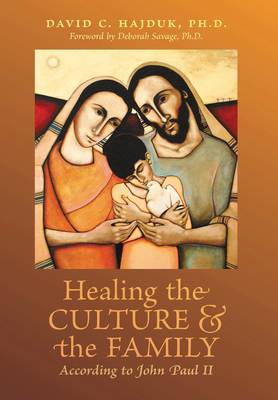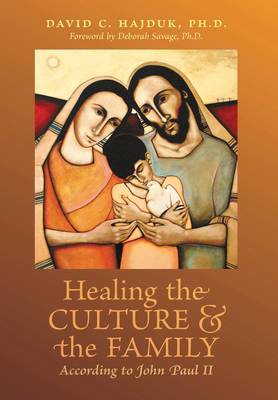
- Afhalen na 1 uur in een winkel met voorraad
- Gratis thuislevering in België vanaf € 30
- Ruim aanbod met 7 miljoen producten
- Afhalen na 1 uur in een winkel met voorraad
- Gratis thuislevering in België vanaf € 30
- Ruim aanbod met 7 miljoen producten
Zoeken
€ 36,95
+ 73 punten
Uitvoering
Omschrijving
It is evident that the culture and the family need healing, but before we can offer a cure, we need to know the spiritual disease ailing us. Pope John Paul II offers a diagnosis in his Letter to Families: the human family is experiencing a "New Manichaeism," a variant of an ancient heresy, that was released with the philosophical revolution of the 17th century philosopher René Descartes and has reached pandemic levels today. This New Manichaeism has deteriorated our understanding of ourselves, the world, and how we ought to live, and borne radical consequences especially in the areas of bioethics and sexual ethics. John Paul II believed the remedy was an "adequate anthropology" - an "integral vision of man" that includes the body within the structural whole of the person's life and activity. This is what he offers in his popularly known Theology of the Body. In this book, Dr. David Hajduk details Pope John Paul II's diagnosis and remedy, explaining how Descartes and the philosophical tradition that followed are at the source of the current crisis in the culture and the family. Dr. Hajduk demonstrates how all the symptoms point to a rejection of the philosophy of St. Thomas Aquinas, as well as how they bear a striking resemblance to the heretical ideas that throughout Christian history have typically been labeled as "Manichaean." Finally, he presents John Paul II's anthropology, particularly as expressed in his oft-misunderstood Theology of the Body, as a corrective especially suited to lead contemporary men and women to the truth about themselves and God's plan for human love, as well as marking a return to the perennial philosophy of St. Thomas Aquinas, which John Paul II himself declared as the only way to get past the Cartesian watershed.
Specificaties
Betrokkenen
- Auteur(s):
- Uitgeverij:
Inhoud
- Aantal bladzijden:
- 218
- Taal:
- Engels
Eigenschappen
- Productcode (EAN):
- 9781990685170
- Verschijningsdatum:
- 24/06/2022
- Uitvoering:
- Hardcover
- Formaat:
- Genaaid
- Afmetingen:
- 152 mm x 229 mm
- Gewicht:
- 489 g

Alleen bij Standaard Boekhandel
+ 73 punten op je klantenkaart van Standaard Boekhandel
Beoordelingen
We publiceren alleen reviews die voldoen aan de voorwaarden voor reviews. Bekijk onze voorwaarden voor reviews.











